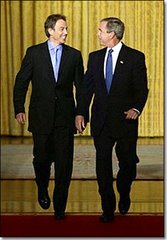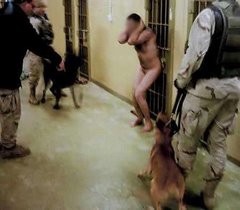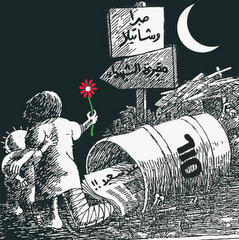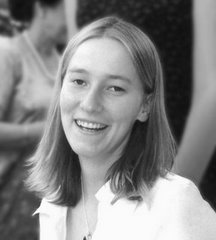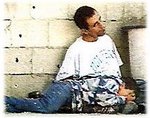 Sheikh Qaradawi during his meeting with a delegation from the group Jews against Zionism
Sheikh Qaradawi during his meeting with a delegation from the group Jews against ZionismA delegation of rabbis "movement against the Zionist Jews" asked to the need for the demise of Israel, adding that the establishment of the State, which describes itself Judaism explicit violation of the Torah।
وأوضح أعضاء الوفد الذين التقوا رئيس الاتحاد العالمي لعلماء المسلمين الشيخ يوسف القرضاوي اليوم الأربعاء بالعاصمة القطرية الدوحة أن مشاكل الصراع بالمنطقة ستختفي بين يوم وليلة إذا زالت إسرائيل
The members of the delegation who met the President of the World Federation of Muslim Scholars, Sheikh Yussef Qaradawi today, Wednesday, the Qatari capital Doha that the problems of the conflict zone will disappear from one day to night if Israel continues.
وقال الحاخام ديفد شلومو فيلدمان من بريطانيا "هناك أمر يقلقنا اليوم॥ نريد أن نقول للعرب والمسلمين إن الإرهاب والوحشية في فلسطين بعيدان كل البعد عن الدين اليهودي" مضيفا أن ذلك جانب من الممارسات الصهيونية।
وقال الحاخام ديفد شلومو فيلدمان من بريطانيا "هناك أمر يقلقنا اليوم॥ نريد أن نقول للعرب والمسلمين إن الإرهاب والوحشية في فلسطين بعيدان كل البعد عن الدين اليهودي" مضيفا أن ذلك جانب من الممارسات الصهيونية।
He said Rabbi David Shlomo Feldman from Britain, "There is concern today .. want to say to the Arabs and Muslims to terrorism and brutality in Palestine, far from the Jewish faith," adding that this aspect of the Zionist practices.
ويرى فيلدمان في قيام دولة إسرائيل شرا على اليهود في العالم، وأن الحركة ضد التوسع الصهيوني والاعتداء على القدس. Feldman believes in the state of Israel to hate Jews in the world, and the movement against the expansion of the Zionist attack on Jerusalem.
أما الحاخام دوفد يتسرائيل وايس من الولايات المتحدة والمتحدث باسم الحركة فأشاد بحسن بالمعاملة والمعايشة التي وجدها اليهود من المسلمين، مؤكدا أنهم لم يضطهدوا اليهود يوما بل احترموا عاداتهم ودياناتهم।
ويرى فيلدمان في قيام دولة إسرائيل شرا على اليهود في العالم، وأن الحركة ضد التوسع الصهيوني والاعتداء على القدس. Feldman believes in the state of Israel to hate Jews in the world, and the movement against the expansion of the Zionist attack on Jerusalem.
أما الحاخام دوفد يتسرائيل وايس من الولايات المتحدة والمتحدث باسم الحركة فأشاد بحسن بالمعاملة والمعايشة التي وجدها اليهود من المسلمين، مؤكدا أنهم لم يضطهدوا اليهود يوما بل احترموا عاداتهم ودياناتهم।
The Dovd Itsraiel Rabbi Weiss of the United States and spokesman for the Movement commended the good treatment and found that cohabitation of Jews from Muslims, saying they were not persecuted Jews days but respected the customs and religions.
وتطرق الرجل إلى نشأة الصهيونية ومؤسسها فقال إن الصهيونية حركة ظالمة ومعتدية وتقلل من قيمة الحياة اليهودية، وأن هرتزل لم يكن متدينا وأراد نقل الحركة من الدين إلى القومية واستغل جهل اليهود وأقنعهم بأن السبيل الوحيد للتخلص من منفاهم هو انتهاك التوراة. Turning to the emergence of the Zionist man and founder, said that the Zionist movement and unjust aggressor and reduce the value of Jewish life, and that Herzl did not extend and wanted to transfer the movement of the national debt, taking advantage of the ignorance of the Jews and convinced that the only way to get rid of exile is a violation of the Torah.
كما أشار وايس إلى أن هناك الآلاف من اليهود داخل الأراضي الفلسطينية المحتلة، إلى جانب مئات الآلاف من اليهود حول العالم ضد الفكرة الصهيونية।
وتطرق الرجل إلى نشأة الصهيونية ومؤسسها فقال إن الصهيونية حركة ظالمة ومعتدية وتقلل من قيمة الحياة اليهودية، وأن هرتزل لم يكن متدينا وأراد نقل الحركة من الدين إلى القومية واستغل جهل اليهود وأقنعهم بأن السبيل الوحيد للتخلص من منفاهم هو انتهاك التوراة. Turning to the emergence of the Zionist man and founder, said that the Zionist movement and unjust aggressor and reduce the value of Jewish life, and that Herzl did not extend and wanted to transfer the movement of the national debt, taking advantage of the ignorance of the Jews and convinced that the only way to get rid of exile is a violation of the Torah.
كما أشار وايس إلى أن هناك الآلاف من اليهود داخل الأراضي الفلسطينية المحتلة، إلى جانب مئات الآلاف من اليهود حول العالم ضد الفكرة الصهيونية।
Weiss also pointed out that there were thousands of Jews in the occupied Palestinian territories, along with hundreds of thousands of Jews around the world against the Zionist idea.
وأضاف: حين وصل الصهاينة إلى فلسطين كان اليهود يعيشون مع جيرانهم العرب وأسسوا مجلس حاخامات لمحاربة الحركة الصهيونية، وفي عام 1947 أرسل كبير الحاخامات دوشنكي إلى الأمم المتحدة قائلا "لا نريد دولة صهيونية" معتبرا أن الأوفياء للتوراة لا يريدون دولة. He added: When the Zionists arrived to the Jews of Palestine living with their Arab neighbours and founded the rabbis to fight the Zionist movement, and in 1947 sent a large Duschnki rabbis to the United Nations, saying "We do not want a Zionist state," saying it loyal to the biblical do not want the State.
إلى زوال To the demise
ويرى الحاخام الأميركي أن دولة إسرائيل لا تتكلم باسم اليهود وإنما قامت بسرقة اسم إسرائيل من الشعب اليهودى، وهى كذلك السبب الرئيسي فى تصاعد الكراهية ونزعات اللاسامية فى أرجاء العالم।
وأضاف: حين وصل الصهاينة إلى فلسطين كان اليهود يعيشون مع جيرانهم العرب وأسسوا مجلس حاخامات لمحاربة الحركة الصهيونية، وفي عام 1947 أرسل كبير الحاخامات دوشنكي إلى الأمم المتحدة قائلا "لا نريد دولة صهيونية" معتبرا أن الأوفياء للتوراة لا يريدون دولة. He added: When the Zionists arrived to the Jews of Palestine living with their Arab neighbours and founded the rabbis to fight the Zionist movement, and in 1947 sent a large Duschnki rabbis to the United Nations, saying "We do not want a Zionist state," saying it loyal to the biblical do not want the State.
إلى زوال To the demise
ويرى الحاخام الأميركي أن دولة إسرائيل لا تتكلم باسم اليهود وإنما قامت بسرقة اسم إسرائيل من الشعب اليهودى، وهى كذلك السبب الرئيسي فى تصاعد الكراهية ونزعات اللاسامية فى أرجاء العالم।
Rabbi finds that the U।S। state of Israel does not speak on behalf of Jews but of stealing the name of Israel from the Jewish people, which is also the main reason for the escalation of hatred and anti-Semitic tendencies around the world.
ويؤكد وايس أن "كل الانتهاكات في الشرق الأوسط يمكن أن تنتهي في ليلة واحدة وهي انتهاء دولة إسرائيل لكن الدول الكبرى مثل أميركا وبريطانيا لا تريد أن تدرك تلك الحقيقة"।
ويؤكد وايس أن "كل الانتهاكات في الشرق الأوسط يمكن أن تنتهي في ليلة واحدة وهي انتهاء دولة إسرائيل لكن الدول الكبرى مثل أميركا وبريطانيا لا تريد أن تدرك تلك الحقيقة"।
The Weiss said "all violations in the Middle East could be finished in one night is the state of Israel but the big powers like the United States and Britain did not want to be aware of that fact."
ويضيف الرجل أن مصير إسرائيل إلى زوال، وأن "من يعمل ضد التوراة فلن ينجح" مستشهدا بتفكك الاتحاد السوفياتي وزوال النظام العنصري من جنوب أفريقيا।
ويضيف الرجل أن مصير إسرائيل إلى زوال، وأن "من يعمل ضد التوراة فلن ينجح" مستشهدا بتفكك الاتحاد السوفياتي وزوال النظام العنصري من جنوب أفريقيا।
He adds that the fate of men to the demise of Israel, and "works against the Torah will not succeed", quoting the disintegration of the Soviet Union and the demise of the racist regime of South Africa.
كما طالب الأمم المتحدة باستحداث إدارة لحماية ضحايا الظلم الصهيوني، مضيفا أن ناشطي الطائفة اليهود يضربون في بيوتهم ويظلمون ويضطهدون।
كما طالب الأمم المتحدة باستحداث إدارة لحماية ضحايا الظلم الصهيوني، مضيفا أن ناشطي الطائفة اليهود يضربون في بيوتهم ويظلمون ويضطهدون।
They also demanded the introduction of United Nations administration to protect the victims of the Zionist injustice, adding that the Jewish community activists beaten in their homes and persecuted and wronged.
وحول الموقف من الانتهاكات التي يتعرض لها الفلسطينيون، قال وايس "قلوبنا تدمي لما يحدث لإخوتنا في فلسطين، ونرى أنفسنا أمام مأساة مزدوجة لأنها وقعت باسم الديانة اليهودية ولكن الناس لا يسمعون أصواتنا॥ والصوت الصهيوني أقوى.. الضغط الصهيوني قوي عليهم"।
وحول الموقف من الانتهاكات التي يتعرض لها الفلسطينيون، قال وايس "قلوبنا تدمي لما يحدث لإخوتنا في فلسطين، ونرى أنفسنا أمام مأساة مزدوجة لأنها وقعت باسم الديانة اليهودية ولكن الناس لا يسمعون أصواتنا॥ والصوت الصهيوني أقوى.. الضغط الصهيوني قوي عليهم"।
Regarding the attitude of violations against the Palestinians, Weiss said, "Our hearts bleed for what is happening to our brothers in Palestine, and we see ourselves in front of a double tragedy because they signed on behalf of the Jewish religion, but people do not hear our voices and sound .. .. stronger Zionist forces of the Zionist pressure on them."
أما الشيخ القرضاوي، فقال إنه لولا المال والسلاح والفيتو الأميركي ما استطاعت إسرائيل أن تصول وتجول وتعربد وتفعل ما يحلو لها. The Sheikh Qaradawi, said that were it not for money, weapons and the U.S. veto Israel was able to roam about the depravity and do what feels to them.
كما نبه إلى وجود مجالات واسعة للتعاون بين أهل الإيمان، يأتي في مقدمتها الوقوف أمام الموجة الإلحادية والفلسفة المادية التي لا تؤمن بكتب السماء।
أما الشيخ القرضاوي، فقال إنه لولا المال والسلاح والفيتو الأميركي ما استطاعت إسرائيل أن تصول وتجول وتعربد وتفعل ما يحلو لها. The Sheikh Qaradawi, said that were it not for money, weapons and the U.S. veto Israel was able to roam about the depravity and do what feels to them.
كما نبه إلى وجود مجالات واسعة للتعاون بين أهل الإيمان، يأتي في مقدمتها الوقوف أمام الموجة الإلحادية والفلسفة المادية التي لا تؤمن بكتب السماء।
It also drew attention to the existence of broad areas of cooperation between people of faith, he said cope with the wave irreligious and philosophy of physical books does not believe the sky। وأشار إلى أن كثيرا ممن حكموا إسرائيل ملحدون।
He pointed out that many of those who ruled Israel atheists. he called d.
القرضاوي للوقوف ضد التحلل والإباحية التي تريد أن تبيح كل شيء للإنسان، وتريده أن يتبع شهواته لا يحجزه شيء عما يشتهي. Qaradawi to stand against decay and permissiveness that want to allow everything to everyone and wants to follow the appetite is something about long for booking.
أما مجال التعاون الثالث الذي ذكره القرضاوي فهو إقامة العدل بين الناس ومحاربة المظالم، فقال إن رسالات السماء كلها جاءت لإقامة العدل وإن أولى الناس بالدع
أما مجال التعاون الثالث الذي ذكره القرضاوي فهو إقامة العدل بين الناس ومحاربة المظالم، فقال إن رسالات السماء كلها جاءت لإقامة العدل وإن أولى الناس بالدع
The third area of cooperation mentioned by Qaradawi is the administration of justice among the people and fighting injustices, said that all consignments of the sky came to the administration of justice and that the first people Bada'
وة إلى العدل ومحاربة الظلم هم رجال الأديان لأن الظلم سبب هلاك البشرية
Justice is to fight injustice and religions are men because the cause of loss of human injustice.
Posted by aljazeera






